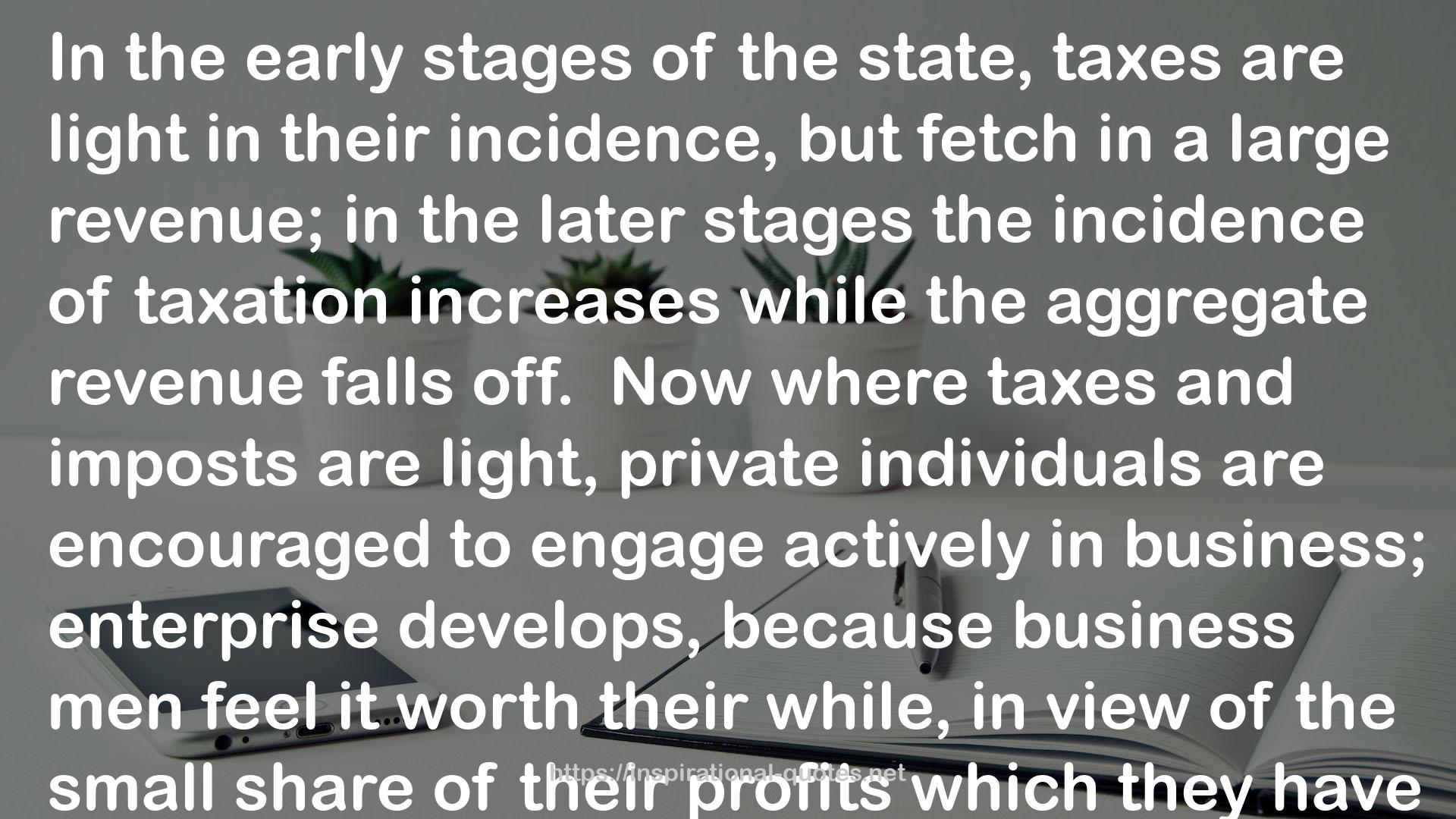" In the early stages of the state, taxes are light in their incidence, but fetch in a large revenue; in the later stages the incidence of taxation increases while the aggregate revenue falls off.
Now where taxes and imposts are light, private individuals are encouraged to engage actively in business; enterprise develops, because business men feel it worth their while, in view of the small share of their profits which they have to give up in the form of taxation. And as business prospers the number of taxes increases and the total yield of taxation grows.
As time passes and kings succeed each other, they lose their tribal habits in favour of more civilized ones. Their needs and exigencies grow.... owing to the luxury in which they have been brought up. Hence they impose fresh taxes on their subjects -farmers, peasants, and others subject to taxation; sharply raise the rate of old taxes to increase their yield; and impose sales taxes and octrois, as we shall describe later. These increases grow with the spread of luxurious habits in the state, and the consequent growth in needs and public expenditure, until taxation burdens the subjects and deprives them of their gains. People get accustomed to this high level of taxation, because the increases have come about gradually, without anyone’s being aware of who exactly it was who raised the rates of the old taxes or imposed the new ones.
But the effects on business of this rise in taxation make themselves felt. For business men are soon discouraged by the comparison of their profits with the burden of their taxes, and between their output and their net profits. Consequently production falls off, and with it the yield of taxation.
The rulers may, mistakenly, try to remedy this decrease in the yield of taxation by raising the rate of the taxes; hence taxes and imposts reach a level which leaves no profits to business men, owing to high costs of production, heavy burden of taxation, and inadequate net profits. This process of higher tax rates and lower yields (caused by the government’s belief that higher rates result in higher returns) may go on until production begins to decline owing to the despair of business men, and to affect population. The main injury of this process is felt by the state, just as the main benefit of better business conditions is enjoyed by it.
From this you must understand that the most important factor making for business prosperity is to lighten as much as possible the burden of taxation on business men, in order to encourage enterprise by giving assurance of greater profits. "
― Ibn Khaldun
Image for Quotes

